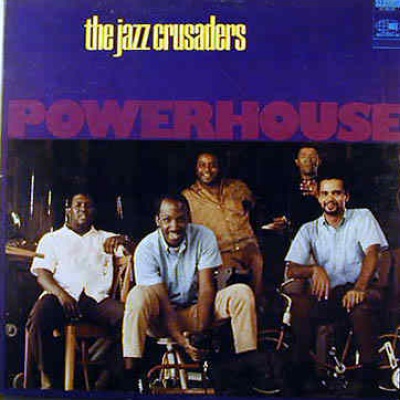
Powerhouse
by Thom Jurek Powerhouse is the studio recording that followed the live Lighthouse '68. It showcases the Jazz Crusaders at their tightly arranged soul-jazz best. This is the first album on which Joe Sample allowed himself the luxury of trying a Fender Rhodes, and as such it offers a new dimension. It also signaled an entirely new era for the band, which took the new electronic device to the heart of its sound and from that point on embraced technology. The reading of "Hey Jude" is a case in point here. The front line of trombonist Wayne Henderson and saxophonist Wilton Felder ushers in the melody in harmonic counterpoint as Stix Hooper dances his way through the changes and Buster Williams strolls his bassline through the middle. When Sample enters it to comp and fill, his lines punctuate the melody as Hooper moves to double time on the kit. The element of groove is interesting; the horns keep it feeling crisp and clean and Sample dirties it up for just the right amount of tension. Williams' bassline introduces an all but unrecognizable "Love Is Blue." Played at three times the tempo and strutted out with funky figures, the horns syncopate the line and Sample moves through both his piano (playing blues lines) and harpsichord (with dissonant figures). The overdriven "Cookie Man," by Henderson, indulges his fascination with both Latin rhythms and gospel grooves. The set closes with the shimmering swing of "Fire Water," by Buster Williams. His wonderfully sophisticated harmonic sensibility never interferes with this sense of space and the amount of room given to soloists in his choruses. In all, this is another watermark for the Jazz Crusaders, who had created one of the most consistent bodies of work in the music.
